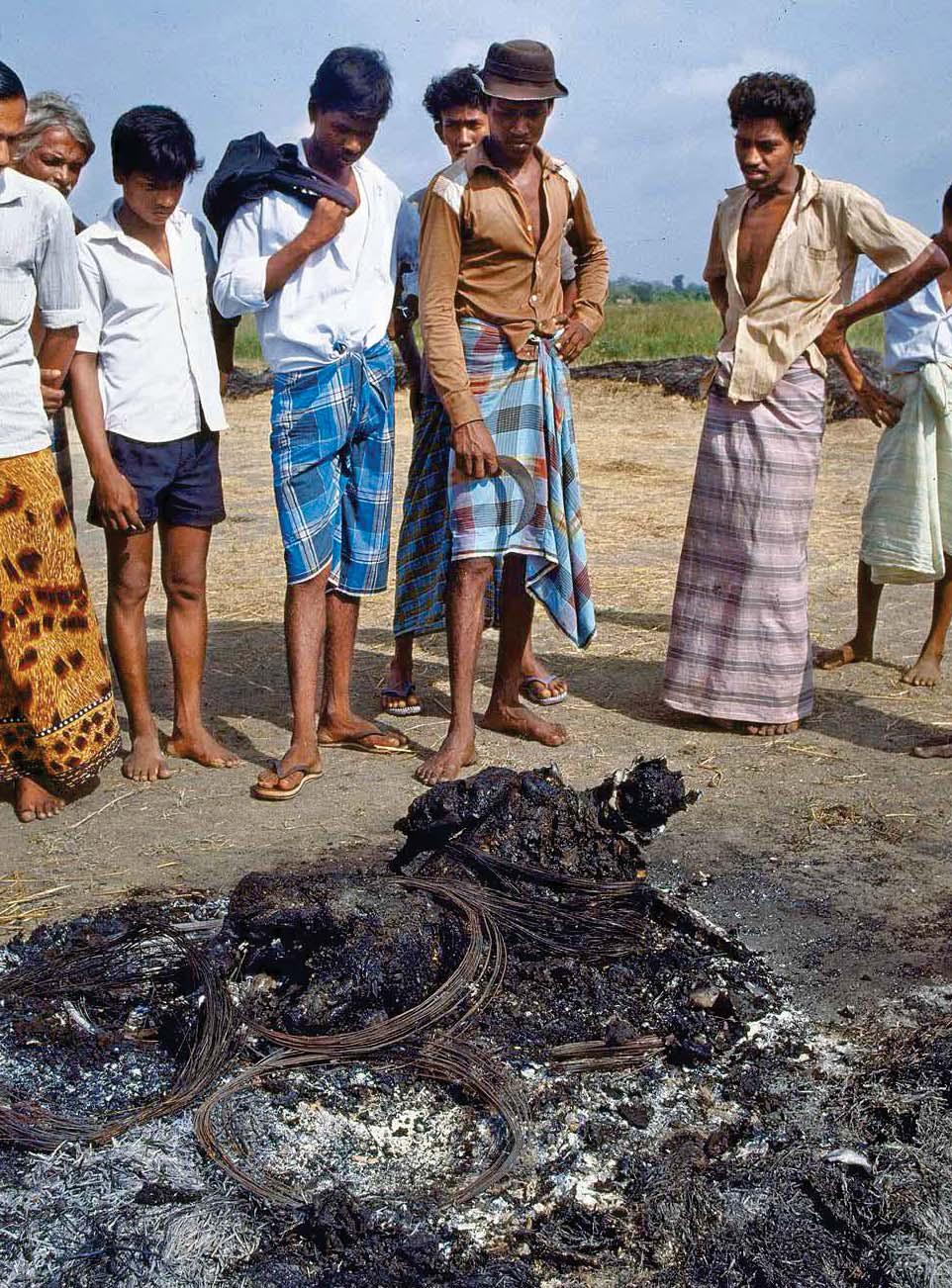
THE sun was beating down on us from a clear blue sky. Driving out of Colombo through the lush green countryside to the south of the island was always a pleasure. As a journalist based in Sri Lanka, I was stepping out to get a sense of what was happening in the Sinhala-Buddhist heartland.
It was the summer of 1988, a time when the island was wracked by violence. The Tamil separatist war in the north and the eastern province was widely reported, but the insurrection in the Sinhala heartland that did not interest the rest of the world, did not get as much media attention.
Colombo was rife with rumours about the Janatha Vimukthi Perumuna (JVP), a radical Marxist-Leninist group gaining ground in the rural countryside as it moved to overthrow President J.R. Jayawardene's government. I wanted to go and check out what was happening and see whether things were as serious as rumours claimed. The Indian High Commission had informally warned five or so Indian reporters stationed in Colombo at that time to remain in Colombo as anti-India sentiments were running high in the south, and the JVP believed that J.R. (as he was commonly called) had sold Sri Lanka to the Indians when he signed the India-Sri Lanka agreement of 1987.
I had driven out of Colombo for about an hour-and-a-quarter when I noticed that down by the river to the right, a group of villagers had gathered in a circle, looking down at something on the ground. I asked the driver to stop and got out of the hired car. I did not speak Sinhala, so the driver who spoke reasonable English followed to translate what the locals said. He was a few steps ahead of me as we approached the group and he told them that I was a reporter who wanted to talk to them. The men made way for me to take a look at what was on the ground.
This story is from the January 11, 2025 edition of Outlook.
Start your 7-day Magzter GOLD free trial to access thousands of curated premium stories, and 9,000+ magazines and newspapers.
Already a subscriber ? Sign In
This story is from the January 11, 2025 edition of Outlook.
Start your 7-day Magzter GOLD free trial to access thousands of curated premium stories, and 9,000+ magazines and newspapers.
Already a subscriber? Sign In

Soft Ruins
'Soft Ruins' is a chapter within the long-term ongoing project \"When Spring Never Comes\", an expansive exploration of memory, identity and displacement in the aftermath of exile within contemporary global politics. It reflects on how the journey as an asylum seeker in Europe mirrors the instability and threats of life under dictatorship, amidst rising right-wing movements and shifting power dynamics, where both certainty and identity are redefined

Building Beyond Homes: Provident Housing's Transformative Approach
Provident Housing leads in crafting thoughtfully designed homes that cater to modern homebuyers' evolving needs. With a focus on timely delivery, sustainability, and innovative, customer-centric solutions, the company sets new benchmarks. In this exclusive interview, Mallanna Sasalu, CEO of Provident Housing, shares insights into the company's strategies, upcoming projects, and vision for India's housing future.

Syria Speaks
A Syrian graffiti artist-activist's tale of living through bombings, gunshots and displacement

The Burdened
Yemen, once a beautiful land identified with the Queen of Sheba, is now one of the worst ongoing humanitarian disasters of modern times

Sculpting In Time
Documentaries such as Intercepted and Songs of Slow Burning Earth grapple with the Russian occupation beyond displays of desolation

The Story Won't Die
Is Israel's triumphalism over its land grab in Syria realistic? The hard reality is-Israel now has Al-Qaeda as a next-door neighbour

Against the Loveless World
In times of war, love exists as a profound act of defiance

Soul of My Soul
What does it mean to continue to create art during a genocide?

in Dancing the Glory of Monsters
By humanising the stories of those affected by war, poverty and displacement, Buuma hopes to foster empathy and inspire action

All the President's Men
Co-author of All The President's Men and one of the two Washington Post journalists (the other was Carl Berntstein) who broke the Watergate scandal that brought down the President Richard Nixon administration in the United States in 1974, Bob Woodward's recent book War was on top of The New York Times Bestseller list, even above John Grisham.